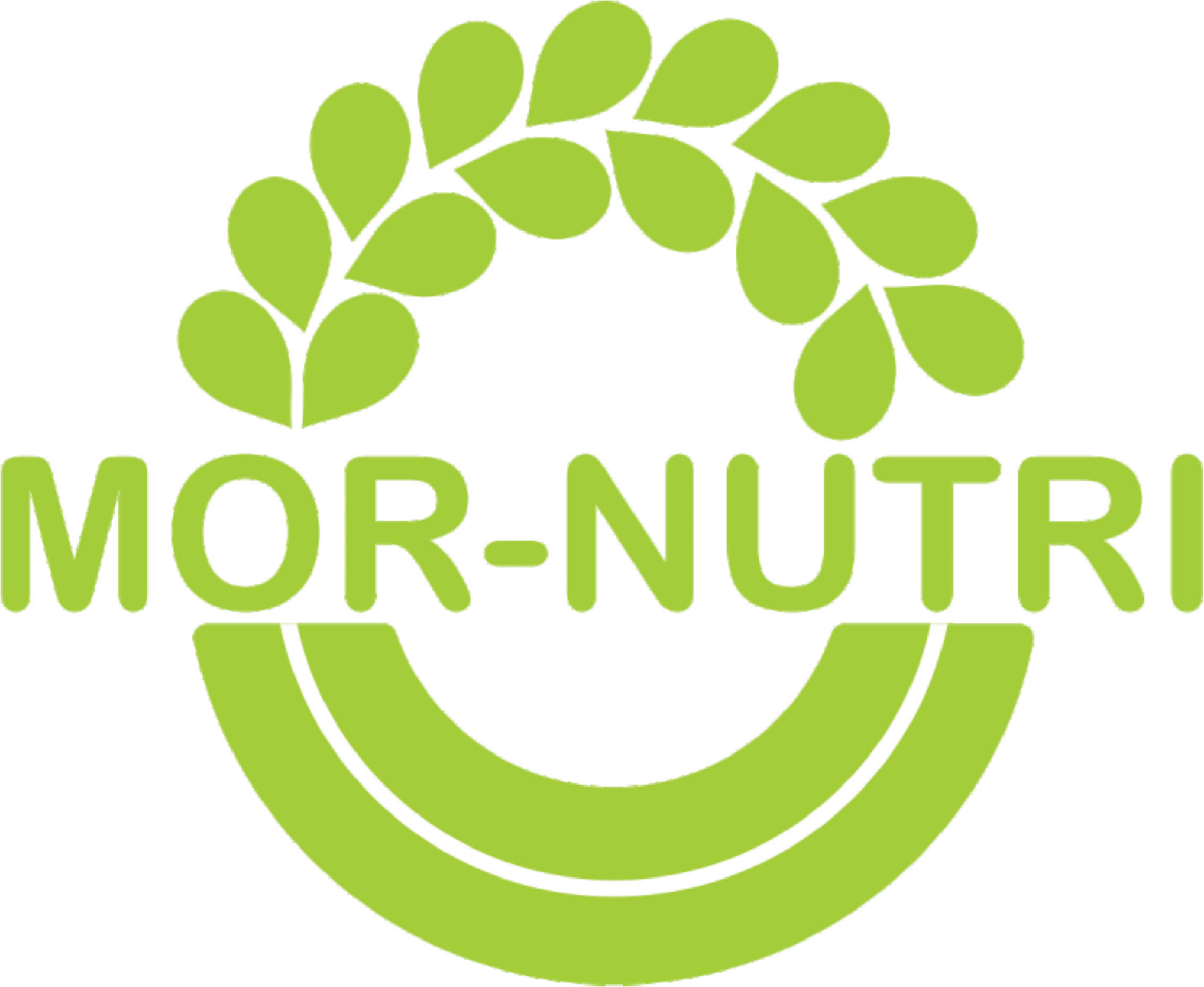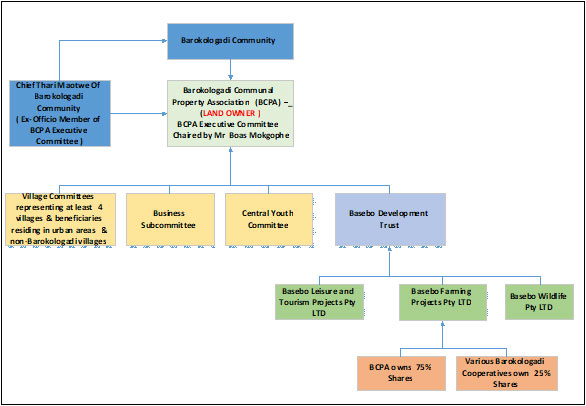Makhasa Private Game Lodge
Investor Login Area - A Deeper Look
Makhasa Private Game Lodge
KwaZulu-Natal Province
Contact Details
Investment Range Required
R50 Million And More
Type of Investment Required
Capital Expenditure
Infrastructure Funding
Working Capital
REVENUE GENERATION
The lodge generates substantial revenue primarily through premium all-inclusive accommodation packages incorporating luxury accommodations, three gourmet meals daily, and twice-daily professional game drives conducted by expert guides. Current market-competitive rates range from R3,650 per person sharing to R5,500 for single occupancy. Supplementary revenue streams include premium beverage sales, therapeutic spa services, and curio shop sales featuring ethically sourced, locally produced artisanal crafts.
Comprehensive Financial Projections are provided in the accompanying Business Plan.
SUPPORT TO YOUNG PEOPLE AND WOMEN
Makhasa Private Game Lodge directly supports local communities through a comprehensive integration strategy implemented across several dimensions:
- 100% of staff are strategically sourced from surrounding communities, creating meaningful formal-sector employment opportunities
- The lodge operates a structured skills development programme in strategic partnership with Wild Impact, currently hosting 7 trainees with an imminent expansion to incorporate 5 additional participants in the upcoming intake.
- Women consistently comprise a significantly higher percentage of employees than men, creating targeted opportunities for female economic empowerment and leadership development.
- Young people lacking tertiary education opportunities are provided with accredited training and hands-on experience through a formal skills development programme with recognised certification.
- The lodge has implemented a clearly defined career progression pathway for community youth, facilitating advancement to management positions.
- Local suppliers, including structured community agricultural projects and established craft markets, are prioritised within the lodge's procurement framework.
- All operational profits from the lodge enterprise directly benefit the Makhasa community through the transparent community trust ownership structure.
SMME PROMOTION
The lodge actively promotes and provides substantial support to small, medium and micro enterprises (SMMEs) through a deliberate localisation strategy:
- The lodge strategically sources authentic crafts and curio items from the Bedula Craft Market, a community-based enterprise creating sustainable livelihoods
- The enterprise is developing an integrated community garden initiative to source fresh organic produce locally, reduce food miles, and enhance community self-sufficiency.
- Local service providers are systematically prioritised for maintenance, technical and support services through preferential procurement protocols.
- The lodge's procurement policies incorporate explicit local supplier development objectives with measurable targets.
- Expanded operations will generate increased procurement volumes from local SMMEs, creating predictable demand for local products and services.
- Specialised training provided to staff members strategically creates potential for entrepreneurial spin-offs and enterprise development in the community.
- The lodge is a demonstrable model of successful community enterprise for other emerging SMMEs in the region, providing mentorship and guidance.
ORGANISATION & GOVERNANCE: PLEASE OUTLINE YOUR GOVERNANCE STRUCTURE
Makhasa Private Game Lodge is wholly owned by the Makhasa Trust, a community-representative entity established to manage the interests of the local Makhasa community following their successful claim for ancestral land through South Africa's formal land restitution programme. The business operates as a duly constituted private company (Pty Ltd), registered under South African law with company registration number 2010/022891/07.
The governance structure comprises:
- Mr Thokozani Thiyamazwi Mlambo serving as the principal Director and designated representative of the community's interests (100% shareholding)
- A professional management team with relevant hospitality qualifications overseeing daily operational activities
- A clearly defined organisational structure incorporating specialised departments for Housekeeping, Front of House, Food & Beverage, and Facilities Maintenance
- Each functional department operates under a designated department head reporting directly to the Lodge Manager.
- The Lodge Manager maintains direct reporting lines to the Director
- Comprehensive financial oversight provided by a qualified financial accountant with appropriate industry experience
This governance framework ensures appropriate community representation while maintaining professional management practices aligned with industry standards.
CAN THE PROJECT BE SCALED
The project demonstrates exceptional scaling potential. The current expansion programme represents the initial phase of a strategic growth trajectory, with clearly identified opportunities for subsequent development phases. Additional luxury accommodation units could be strategically integrated, and the operational model could be systematically expanded to incorporate experiential tourism offerings in other sections of the community's substantial land holdings.
The business model can be effectively replicated in other communities with land assets in biodiversity-rich areas across South Africa and beyond. The Makhasa approach offers a comprehensive blueprint for communities that secure land through restitution processes to pursue conservation-compatible development that generates sustainable economic benefits with minimal environmental impact. The distinctive combination of community ownership, professional management expertise, and strategic partnerships with conservation authorities creates a readily replicable framework for similar initiatives throughout the region.
ENVIRONMENTAL IMPACT:
The project will substantively improve existing environmental conditions through multiple integrated mechanisms:
- Materially strengthening the economic business case for maintaining the land under formal conservation status rather than converting to environmentally detrimental alternative land uses
- Generating significantly increased revenue streams dedicated to conservation initiatives and biodiversity management within the reserve
- Implementing comprehensive water management systems through infrastructure upgrades, substantially reducing pressure on local water resources
- Expanding support for systematic alien invasive plant species removal and habitat restoration efforts across the reserve
- Developing enhanced environmental education facilities with interpretive materials for guests, staff and community members
- Enabling more effective wildlife monitoring and anti-poaching measures through improved infrastructure and technological capabilities
- Contributing substantively to the maintenance and ecological integrity of the critical wildlife corridor within the broader Munyawana Conservancy ecosystem
- Providing a demonstrable, financially viable model for conservation-focused land use with quantifiable economic returns
- Ensuring ongoing protection of the globally significant sand forest ecosystem and its associated endemic and threatened species
SOCIAL IMPACT:
The strategic expansion of Makhasa Private Game Lodge will significantly enhance livelihoods within the local community through multiple interventions:
- Creation of 15-20 additional permanent formal-sector employment opportunities, directly benefiting economically vulnerable local households
- Development of specialised, market-relevant skills in hospitality management, conservation practice, and tourism operations with recognised certification
- Substantial increase in monthly household income flowing into the community through wages, salaries and community trust dividends.
- Systematically expanded opportunities for local suppliers and service providers through preferential procurement policies.
- Enhanced skills development programme capacity, particularly targeting unemployed youth with limited educational opportunities
- Strategic empowerment of women through explicit preferential employment policies and leadership development initiatives
- Fostering community pride and dignity through demonstrable community ownership of a prestigious tourism operation with national recognition
- Facilitated transfer of valuable skills and knowledge that can be applied in multiple economic contexts beyond tourism
- Establishment of a replicable model for community self-determination and economic empowerment for historically marginalised communities across South Africa
- Active preservation of cultural heritage and intergenerational connection to ancestral lands through sustainable economic activity
SUSTAINABILITY
The project demonstrates exceptionally strong sustainability indicators across multiple dimensions:
- The proposed capital investment strategically addresses critical infrastructure and capacity constraints that currently restrict growth potential
- Carefully calibrated new revenue streams will systematically diversify income sources, substantially reducing vulnerability to market fluctuations and economic cycles.
- The lodge has successfully established a market presence and a positive reputation within both domestic and international premium tourism sectors.
- The strategic location within a prestigious Big 5 reserve offers a persistent and defensible competitive advantage in the luxury safari market.
- The community ownership structure ensures exceptional long-term commitment to sustainable operations with intergenerational benefits.
- Robust professional management systems with appropriate controls are already established and functioning effectively.
- The structured skills development programme creates a sustainable pipeline of qualified staff members with career advancement pathways.
- The enterprise follows sound financial management principles with a consistent 70% gross profit margin exceeding industry benchmarks.
- The lodge maintains a strategically balanced mix of domestic and international clientele, providing market resilience through economic cycles.
- The authentic community ownership narrative creates a distinctive brand positioning that resonates strongly with contemporary responsible tourism market trends.














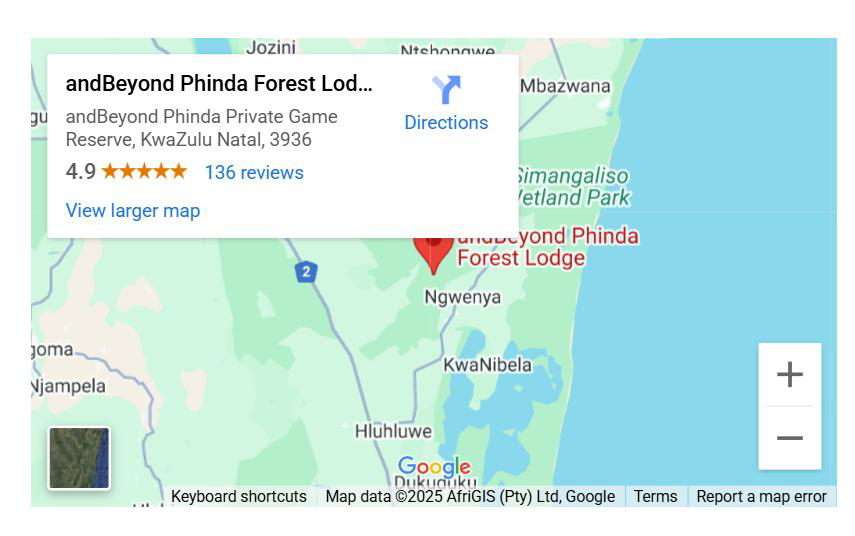
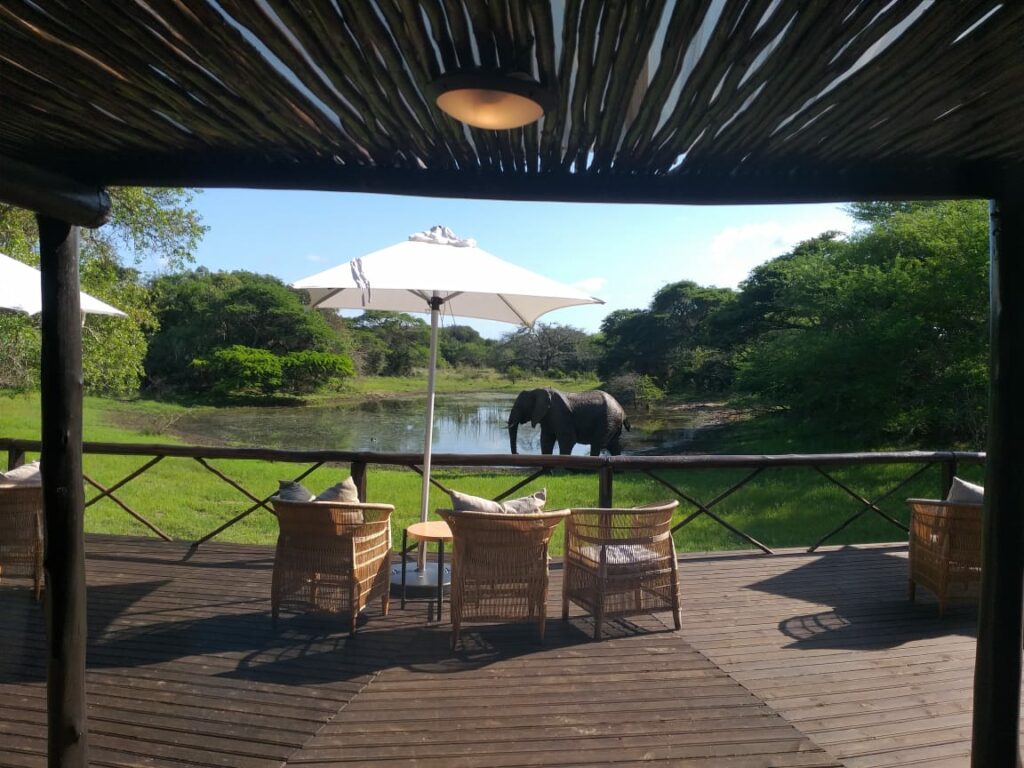
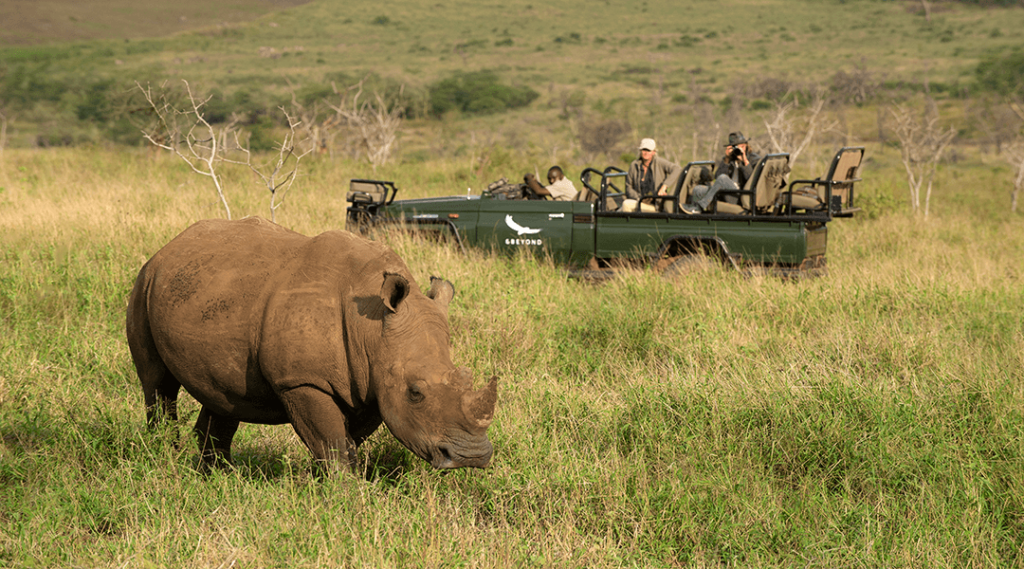
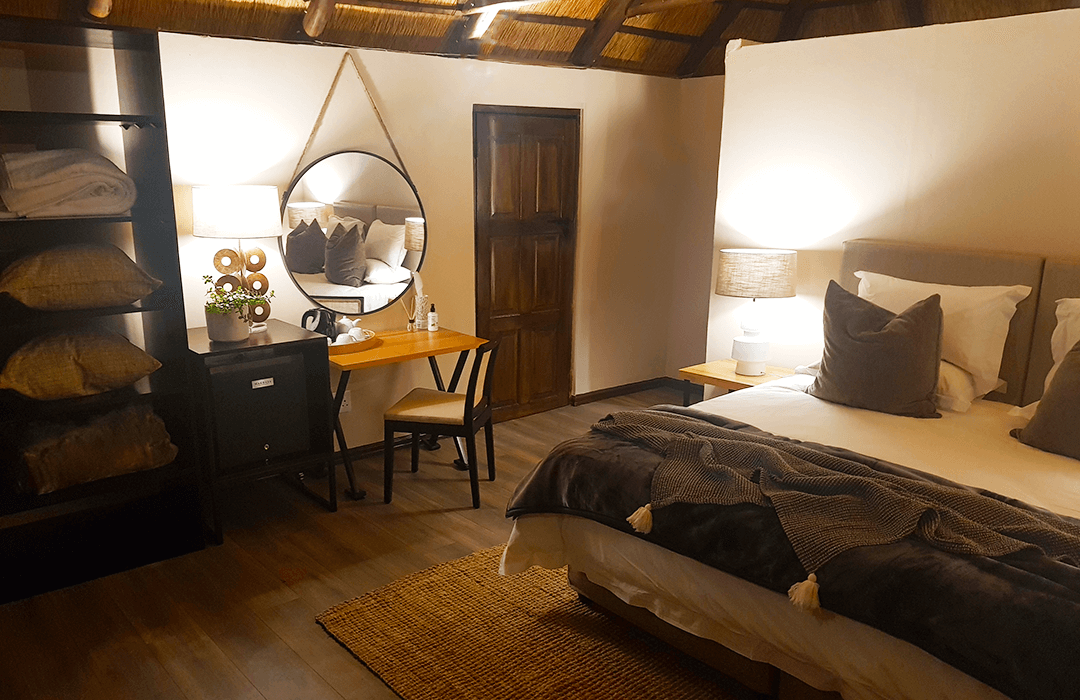
%20Ltd.jpg)

